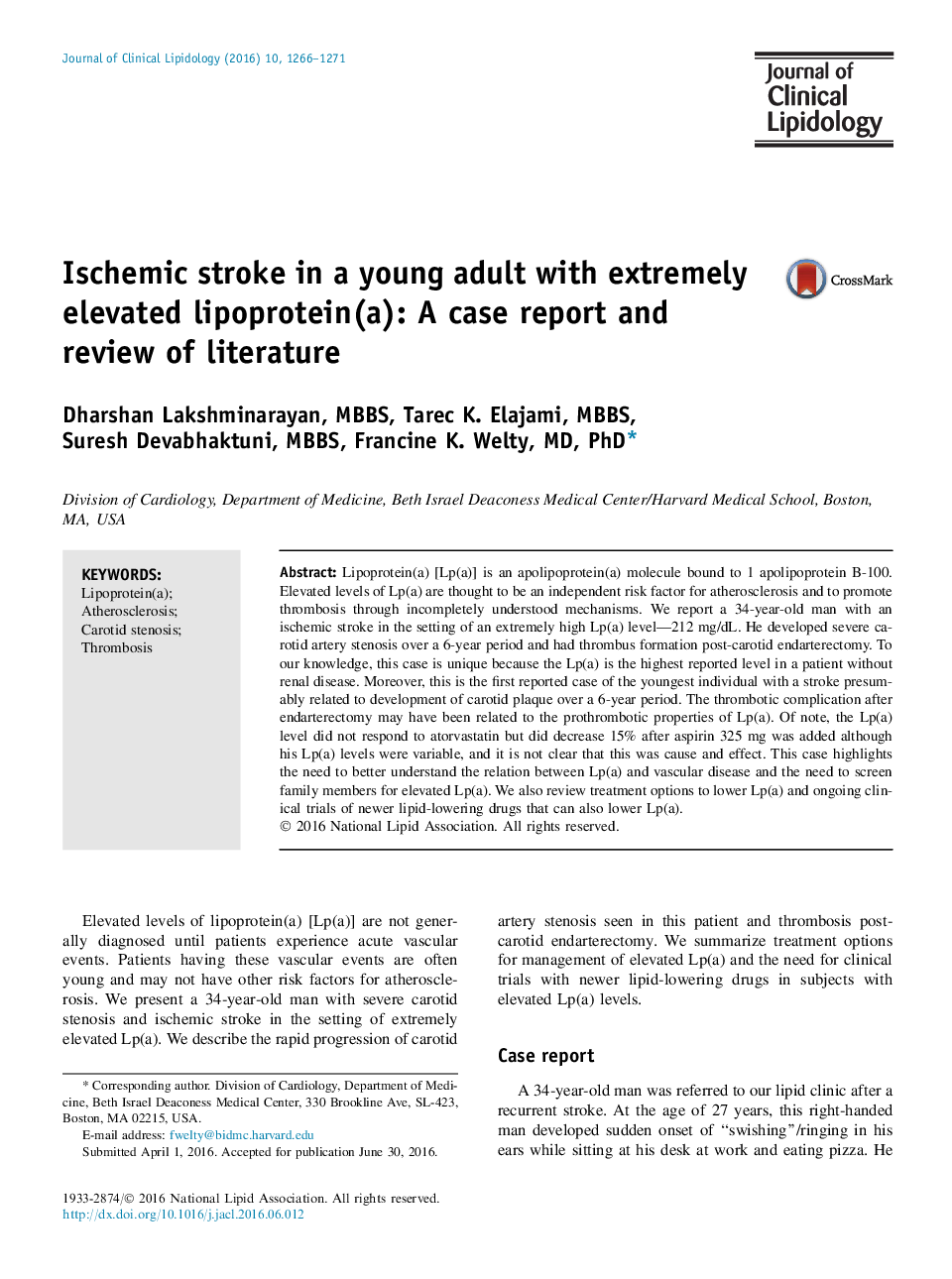| Article ID | Journal | Published Year | Pages | File Type |
|---|---|---|---|---|
| 5615427 | Journal of Clinical Lipidology | 2016 | 6 Pages |
Abstract
Lipoprotein(a) [Lp(a)] is an apolipoprotein(a) molecule bound to 1 apolipoprotein B-100. Elevated levels of Lp(a) are thought to be an independent risk factor for atherosclerosis and to promote thrombosis through incompletely understood mechanisms. We report a 34-year-old man with an ischemic stroke in the setting of an extremely high Lp(a) level-212 mg/dL. He developed severe carotid artery stenosis over a 6-year period and had thrombus formation post-carotid endarterectomy. To our knowledge, this case is unique because the Lp(a) is the highest reported level in a patient without renal disease. Moreover, this is the first reported case of the youngest individual with a stroke presumably related to development of carotid plaque over a 6-year period. The thrombotic complication after endarterectomy may have been related to the prothrombotic properties of Lp(a). Of note, the Lp(a) level did not respond to atorvastatin but did decrease 15% after aspirin 325 mg was added although his Lp(a) levels were variable, and it is not clear that this was cause and effect. This case highlights the need to better understand the relation between Lp(a) and vascular disease and the need to screen family members for elevated Lp(a). We also review treatment options to lower Lp(a) and ongoing clinical trials of newer lipid-lowering drugs that can also lower Lp(a).
Related Topics
Health Sciences
Medicine and Dentistry
Cardiology and Cardiovascular Medicine
Authors
Dharshan MBBS, Tarec K. MBBS, Suresh MBBS, Francine K. MD, PhD,
